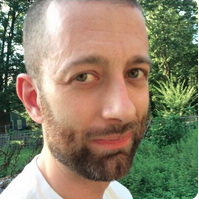Not a lie, the kind that some teachers tell, about how much this worksheet is going to help you when you’re an engineer or an inventor or a programmer or a museum curator.
And not the kind of lie about work hard and jump through just one more hoop, and the next, and the next, and everything will be okay.
It’s a much simpler lie: I don’t know.
I pretend to not know lots and lots and lots of things I actually know. I pretend not to know how to do lots of things I know how to do. I do this with regularity and impunity.
I do this for many reasons. It builds community, because now students have to ask each other how to do things, instead of asking me--and I find that they generally remember better when one of their peers tells them, anyway. It also builds community in the sense of uniting them against their teacher who seems to be going out of his way to irritate them. Guilty as charged.
I also do this to introduce the idea of struggle. Cheryl and I talk, read, and write a lot about how cognitive psychology says that the more you struggle with something in order to decode it or parse it or otherwise figure it out, the more likely you are to remember it and be able to use it later.
And some struggle happens organically. Writing is hard, reading big books is hard, expanding vocabulary is hard, the videos refusing to move from your phone to YouTube--that’s also hard. A lot of the time, though, I just pretend to not know how to do something. My students often tell each other “Google it, because that’s what he’s going to tell you to do anyway.”
This is a big change for me, the whole “not needing to know everything at all times” thing. And it’s funny, really, that the three little words that have changed my class forever are often a flat-out lie.
So try it in your class. Instead of explaining all the things all the time, just say, I don’t know. See if you can figure it out. Explain it to me when you do. Pretty cool things happen when you do.

 RSS Feed
RSS Feed
